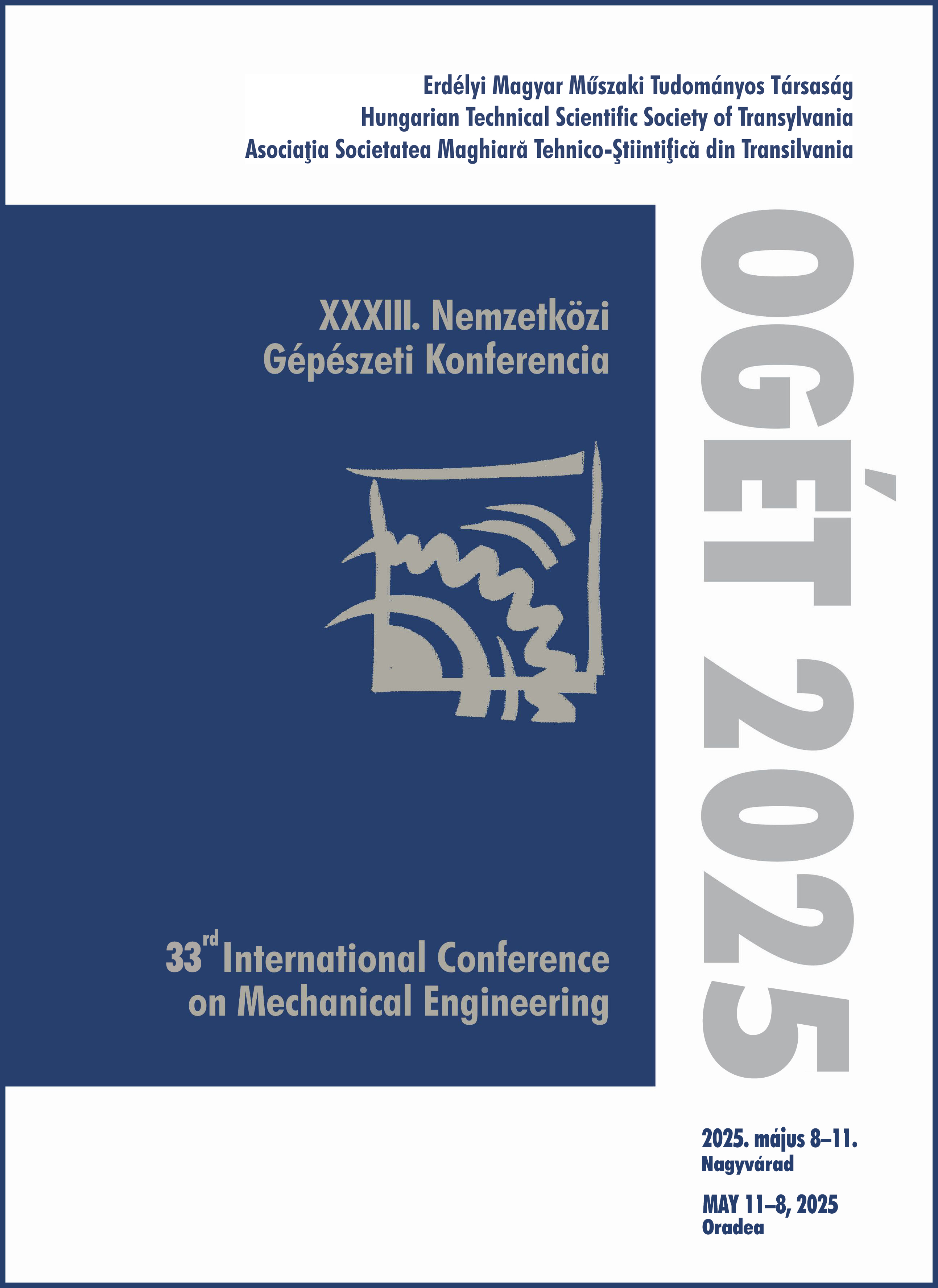Bioalapú lánchossz-növelő adalékanyag fejlesztése politejsavhoz
Development of bio-based chain extender for poly(lactic acid)
Keywords:
multiple recycling, poly(lactic acid), chain extender, waste reduction, extrusion, /, többszöri újrahasznosítás, politejsav, lánchossz-növelő, hulladékcsökkentés, extrúzióAbstract
In our research, we processed PLA in multiple extrusion cycles, thereby modeling the processes occurring during mechanical recycling. PLA is highly sensitive to thermal degradation and as a result of hydrolysis during the recycling steps, its molecular weight decreases significantly, which leads to a deterioration of the mechanical properties of the final product. During our experiments, we tested a bio-based chain extender. Our goal was to find materials with potential chain extender properties that would offer a more sustainable and biodegradable alternative to currently commercially available petroleum-based additives.
Kivonat
Kutatásunk során a PLA-t több extrúziós ciklusnak vetettük alá, ezzel modellezve a mechanikai újrahasznosítás során lejátszódó folyamatokat. A PLA kiemelten érzékeny a termikus degradációra, az újrafeldolgozási lépések közben fellépő hidrolízis eredményeként molekulatömege jelentősen csökken, ami a végtermék mechanikai tulajdonságainak romlásához vezet. Kísérleteink során bioalapú lánchossznövelő adalékanyagot fejlesztettünk. Célunk az volt, hogy olyan potenciálisan lánchosszabbító tulajdonságú anyagokat találjunk, amelyek fenntarthatóbb és biológiailag lebontható alternatívát kínálnak a jelenleg kereskedelmi forgalomban kapható kőolaj alapú adalékokkal szemben.
References
PlasticsEurope. Plastics – the Facts 2022, PlasticsEurope AISBL, Brüsszel, 2022.
Geyer R., Jambeck J. R., Law K. L. Production, use, and fate of all plastics ever made. Science Advances. AAAS, 2017, 3, e1700782.
Skoczinski P., Carus M., Tweddle G., Ruiz P., Hark N., Zhang A., de Guzman D., Ravenstijn J., Käb H., Raschka A. Bio-based building blocks and polymers – Global capacities, production and trends 2023 – 2028, Nova-Institut GmbH, Hürth, 2024.
Niaounakis M. Introduction to Biopolymers in Biopolymers Reuse, Recycling, and Disposal, William Andrew, Amsterdam, 2013.
Khankrua R., Pivsa-Art S., Hiroyuki H., Suttiruengwong S. Effect of chain extenders on thermal and mechanical properties of poly(lactic acid) at high processing temperatures: Potential application in PLA/Polyamide 6 blend. Polymer Degradation and Stability. Elsevier, 2014, 108, 232-240.
Iñiguez-Franco F., Auras R., Ahmed J., Selke S., Rubino M., Dolan K., Soto-Valdez H. Control of hydrolytic degradation of Poly(lactic acid) by incorporation of chain extender: From bulk to surface erosion. Polymer Testing. Elsevier, 2018, 67, 190-196.
Gere D., Czigany T. Future trends of plastic bottle recycling: Compatibilization of PET and PLA. Polymer Testing, Elsevier, 2020, 81, 106160.
Coltelli, M.-B., Bertolini, A., Aliotta, L., Gigante, V., Vannozzi, A., Lazzeri, A. Chain extension of poly(lactic acid) (PLA)–based blends and composites containing bran with biobased compounds for controlling their processability and recyclability. Polymers, MDPI, 2021, 13, 3050.
Quiles-Carrillo L., Duart S., Montanes N., Torres-Giner S., Balart R. Enhancement of the mechanical and thermal properties of injection-molded polylactide parts by the addition of acrylated epoxidized soybean oil. Materials & Design, Elsevier, 2018, 140, 54-63.


